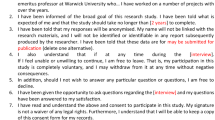Abstract
This article takes as its starting point the concept of aetonormativity (the adult normativity germane to the discourse of children’s literature), coined by Maria Nikolajeva (2010) in an attempt to unify the increasingly power-oriented theories of children’s literature criticism within the past few decades. Acknowledging the usefulness of this concept, but wary of the fact that it could imply an easy transference of “adult” power theory to the study of children’s literature, I argue that an aetonormativity-centred system of children’s literature criticism crucially needs to reconceptualise the notion of “power” which lies at its heart. Any automatic connection between adult normativity and adult “power” would thus be questioned and critiqued. I propose a first conceptual split of “power” into “authority” and “might”, and a consequent redistribution of these two concepts to the adult and child parties in the children’s book. I then investigate the critical and metacritical implications, within the framework of an aetonormativity-centred criticism of children’s literature, of an increased subtlety in the use and handling of the concept of power when referring to the complex medium of the children’s text.
Similar content being viewed by others
References
Arendt, Hannah. (1960). Between Past and Future: Six Exercises in Political Thought. London: Faber & Faber.
Booth, Wayne C. (2001). Why Ethical Criticism Can Never Be Simple. In T.F. Davis and K. Womack (Eds.), Mapping the Ethical Turn: A Reader in Ethics, Culture, and Literary Theory (pp. 16–29). Charlottesville: University Press of Virginia.
Hollindale, Peter. (1988). Ideology and the Children’s Book. Stroud: Thimble Press.
Hunt, Peter. (1991). Criticism, Theory, & Children’s Literature. Oxford: Blackwell.
Hunt, Peter. (1992). Introduction. In P. Hunt (Ed.), Literature for Children: Contemporary Criticism (pp. 1–17). London: Routledge.
Hunt, Peter. (2005). Introduction: The Expanding World of Children’s Literature Studies. In P. Hunt (Ed.), Understanding Children’s Literature (pp. 1–14). London: Routledge.
Knowles, Murray, and Malmkjær, Kirsten. (1996). Language and Control in Children’s Literature. London: Routledge.
Lesnik-Oberstein, Karín. (1994). Children’s Literature: Criticism and the Fictional Child. Oxford: Clarendon.
McGillis, Roderick. (1996). The Nimble Reader: Literary Theory and Children’s Literature. New York: Twayne.
Mickenberg, Julia L., and Nel, Philip (Eds.) (2008). Tales for Little Rebels: A Collection of Radical Children’s Literature. New York: New York University Press.
Nikolajeva, Maria. (2010). Power, Voice and Subjectivity in Literature for Young Readers. London: Routledge.
Nodelman, Perry. (1992). The Other: Orientalism, Colonialism, and Children’s Literature. Children’s Literature Association Quarterly, 17(1), 29–35.
Nodelman, Perry. (1994). Humane Ideology. Children’s Literature, 22, 173–178.
Nodelman, Perry. (2008). The Hidden Adult: Defining Children’s Literature. Baltimore: Johns Hopkins University Press.
Pinsent, Pat. (1993). The Power of the Page. London: David Fulton.
Reynolds, Kimberley. (2007). Radical Children’s Literature: Future Visions and Aesthetic Transformations in Juvenile Fiction. Basingstoke: Macmillan.
Rose, Jacqueline. (1984). The Case of Peter Pan, or The Impossibility of Children’s Fiction. Basingstoke: Macmillan.
Rudd, David. (2005). Theorising and Theories: How Does Children’s Literature Exist? In P. Hunt (Ed.), Understanding Children’s Literature (pp. 15–29). Basingstoke: Routledge.
Rudrum, David. (2006). Introduction—Literature and Philosophy: The Contemporary Interface. In D. Rudrum (Ed.), Literature and Philosophy: A Guide to Contemporary Debates (pp. 1–8). Basingstoke: Macmillan.
Sarland, Charles. (2005). Critical Tradition and Ideological Positioning. In P. Hunt (Ed.), Understanding Children’s Literature (pp. 30–49). Basingstoke: Routledge.
Shavit, Zohar. (1986). Poetics of Children’s Literature. Athens and London: University of Georgia Press.
Stephens, John. (1992). Language and Ideology in Children’s Fiction. London: Pearson.
Sutherland, Robert D. (1985). Hidden Persuaders: Political Ideologies in Literature for Children. Children’s Literature in Education, 16(3), 143–157.
Tatar, Maria. (2009). Enchanted Hunters: The Power of Stories in Childhood. New York: WW Norton.
Trites, Roberta Seelinger. (2000). Disturbing the Universe: Power and Repression in Adolescent Literature. Iowa City: University of Iowa Press.
Vallone, Lynne. (2009). Ideas of Difference in Children’s Literature. In M.O. Grenby and A. Immel (Eds.), The Cambridge Companion to Children’s Literature (pp. 174–189). Cambridge: Cambridge University Press.
Weber, Max. (1968). Economy and society: An outline of interpretive sociology (Vol. 1) (Eds. G. Roth and C. Wittich; trans. E. Fischoff et al.). New York: Bedminster Press.
Zipes, Jack. (2001). Sticks and Stones: The Troublesome Success of Children’s Literature from Slovenly Peter to Harry Potter. Basingstoke: Routledge.
Zornado, Joseph. (2001). Inventing the Child. Culture, Ideology, and the Story of Childhood. New York: Taylor and Francis.
Author information
Authors and Affiliations
Corresponding author
Additional information
Clémentine Beauvais is a third-year PhD student in Children’s Literature at the University of Cambridge, under the supervision of Professor Maria Nikolajeva. Her research focuses on the uses of political theory in understanding politically committed contemporary children’s literature. She is also a published children’s writer in France and the UK.
Rights and permissions
About this article
Cite this article
Beauvais, C. The Problem of ‘Power’: Metacritical Implications of Aetonormativity for Children’s Literature Research. Child Lit Educ 44, 74–86 (2013). https://doi.org/10.1007/s10583-012-9182-3
Published:
Issue Date:
DOI: https://doi.org/10.1007/s10583-012-9182-3




